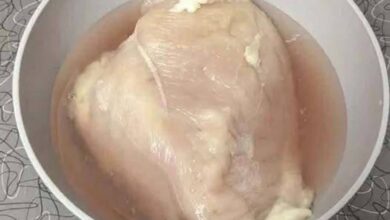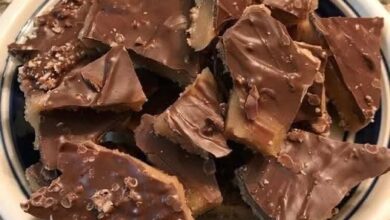Ginger Lemon Slimming Support Drink


A bright, gently spiced daily tonic built from ginger, lemon, mild natural sweetener, and supportive aromatics designed to encourage hydration, ease digestion for some people, and replace higher‑calorie beverages. This drink is a ritual rather than a magic cure: when paired with sensible eating, regular movement, adequate sleep, and stress management it can help you feel lighter and reduce bloating, which may make the waistline appear slimmer. It is hydrating, low‑calorie, and has mild warming—ginger can stimulate digestion and mild thermogenesis in some individuals; lemon adds acidity that many find refreshing and appetite‑modulating. This recipe includes a concentrated morning shot option, a larger sipping pitcher, guidance on timing and frequency, safety notes, and ways to combine the drink with practical lifestyle changes so results are sustainable and healthy.
Ingredients
Makes about 1.2 litres (4–5 cups) ready to drink plus concentrated shots.
Base ingredients
Filtered water: 1.2 litres (about 5 cups)
Fresh ginger root: 60–80 g (about a 2–3 inch knob), peeled and thinly sliced or lightly crushed
Fresh lemons: 3 medium (zest of 1, juice of 2–3, plus extra for serving)
Green tea leaves or a mild herbal tea (optional): 1–2 teabags or 2 teaspoons loose tea (optional for antioxidants and light caffeine)
Natural balancing ingredients
Honey, maple syrup, or other mild sweetener: 1–2 teaspoons (optional; use sparingly)
Ground cinnamon or a small cinnamon stick: 1/2 teaspoon or 1 stick (optional—adds depth)
Fresh mint leaves: a handful (optional, for a cooling finish)
Pinch of ground turmeric or 1 teaspoon fresh grated turmeric (optional for color and anti‑inflammatory note; add a tiny pinch of black pepper to increase curcumin absorption if using turmeric)
Concentrate (morning shot) — optional
Double the ginger and lemon proportions to make a 150–200 ml concentrate that is diluted 1:3 with warm water at the time of drinking.
Equipment
Saucepan for infusion, fine mesh strainer, pitcher with lid, citrus juicer and zester, kettle for hot water, measuring spoons.
Instruction
Prepare the infusion base
Bring 1.2 litres filtered water to a gentle simmer in a saucepan. Add sliced ginger and the cinnamon stick (if using). Keep the heat low‑medium so the water barely simmers and the ginger releases its oils without becoming bitter. Simmer gently for 8–12 minutes for a pronounced ginger character; 4–6 minutes gives a milder infusion.
Add tea and steep (optional)
Remove the pan from heat and add green tea or a mild herbal tea if using. Cover and steep 2–3 minutes for green tea, 4–6 minutes for herbal infusions; do not oversteep green tea to avoid bitterness. Remove tea bags or strain loose leaves before continuing.
Strain and cool slightly, then add lemon and sweetener
Strain the warm infusion into a heatproof pitcher. Stir in freshly squeezed lemon juice and lemon zest. Taste and add 1–2 teaspoons of honey or maple syrup only if needed; keep the drink lightly sweet or unsweetened to preserve its low‑calorie nature.
Chill or serve warm
For a refreshing cold tonic, refrigerate until chilled and serve over ice with a sprig of mint. For mornings, a warm 150–200 ml cup works well — pour concentrate diluted 1:3 or sip the ready‑made pitcher warmed slightly. The warm version can be soothing, especially on an empty stomach in the morning.
Concentrate shot method (optional)
To make concentrated morning shots, double ginger and lemon and simmer for 10–15 minutes. Strain and store the concentrate in a sealed jar in the fridge for up to 5 days. Mix one part concentrate with three parts warm water at the time of drinking. Adjust dilution to taste and tolerance.
Serving routine and timing suggestions
Suggested habit: one warming cup or diluted concentrate first thing in the morning on an empty stomach to support hydration and gently stimulate digestion; a second cup mid‑afternoon or 30 minutes before a meal can help reduce bloating and replace higher‑calorie beverages. Limit intake to two cups daily if you use concentrated shots or if you are sensitive to ginger or caffeine (from added tea).
Servings
Yield: about 4–5 servings (200–300 ml each) from the pitcher.
Note
Realistic expectations and safety considerations
No single drink will produce dramatic body‑shape changes in seven days. Sustainable reductions in body fat require consistent energy balance (calorie intake vs. expenditure), resistance and aerobic movement, sleep, and stress control. This drink supports healthy habits by improving hydration, providing a low‑calorie alternative to sugary beverages, and offering mild digestive comfort for some people. It may reduce subjective bloating for many users, which can make clothing feel looser, but actual fat loss cannot be guaranteed by any single beverage.
Digestive and medical cautions: ginger is generally safe in culinary amounts but can interact with some medications (blood thinners, diabetes medications) and may aggravate gastroesophageal reflux in sensitive individuals. Lemon and citrus can erode dental enamel over time if sipped constantly; use a straw and rinse the mouth with plain water after drinking. If pregnant, breastfeeding, or on regular medication, consult a healthcare professional before using concentrated herbal routines daily.
Caffeine note: if green or black tea is included, account for the caffeine content in your daily total. Replace with caffeine‑free herbal tea if consuming late in the day or if caffeine‑sensitive.
Hydration vs. diuretic effect: this tonic contributes to fluid intake; ginger and lemon are not strong diuretics in culinary doses, but monitor overall hydration. Elderly people or those with kidney issues should check with a clinician before regularly using concentrated herbal infusions.
Practical tips to enhance effectiveness
Replace, don’t add: use this tonic to replace caloric drinks (sweetened coffees, sodas, juices). Swapping one high‑calorie beverage for this low‑calorie drink daily creates a meaningful calorie deficit over time.
Pair with protein and fiber: drinking this tonic before a balanced meal of protein, fiber, and healthy fats can help slow intake and improve satiety signals.
Combine with movement: a short walk after the morning cup can support digestion and amplify metabolic benefits of daily activity.
Track and adjust: note how the drink affects digestion, appetite, and sleep. If it causes heartburn, reduce ginger and avoid drinking on an entirely empty stomach.
Troubleshooting common issues
Too spicy or warming: reduce the amount of ginger or shorten simmering time. Adding a teaspoon of honey or cooling mint balances heat.
Bitter flavor: avoid oversteeping green tea and reduce simmer time for ginger. Use warm rather than boiling water for green tea to avoid bitterness.
Tooth sensitivity: minimize direct contact with enamel by using a straw and rinsing with water after drinking.
Variations and recipe ideas
Mint‑Cucumber Cooler: add thin cucumber slices and fresh mint for a cooling summer version; omit tea and serve chilled.
Turmeric Ginger Tonic: add 1/4 teaspoon ground turmeric or 1 teaspoon fresh grated turmeric plus a pinch of black pepper for an anti‑inflammatory profile; keep intake moderate.
Cardamom‑Citrus Morning Shot: add 1 crushed green cardamom pod to the simmer for aromatic lift and a subtle digestive spice.
Fizzy afternoon refresher: mix one part chilled tonic with one part sparkling water and garnish with lemon and mint for a festive low‑calorie spritz.
Other recipes to support a healthy routine
Balanced overnight oats with Greek yogurt and berries for sustained morning energy.
Simple Mediterranean‑style salad with chickpeas and olive oil for nutrient density and satiety.
Gentle post‑meal walk routine and short resistance training circuit to combine with dietary changes for lasting body‑composition improvements.
This Ginger‑Lemon Slimming Support Drink is intended as a flavorful habit that supports hydration and better choices—not a shortcut to rapid weight loss. Use it as part of a broader, sustainable plan that includes nutrient‑dense food, daily movement, adequate sleep, and professional medical guidance when needed.



